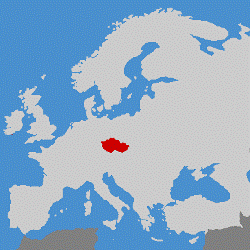New Czech Republic Gambling Laws Come into Effect

On January 1st, the Czech Republic modernized its gambling laws through the adoption of a bill known as the Gambling Act, or Act No. 186/2016 Coll, with the Czech Ministry of Finance tasked with the responsibility of overseeing the country’s iGaming market. The new bill opens up the Czech online gambling market to all European Union and European Economic Area residents, with Czech lawmakers now hopeful that the new system will bring a steady stream of tax revenues to the government.
No Operating Without a License
Under the new gambling law, foreign and domestic online operators are not permitted to offer their products without first obtaining a license from the Czech Republic. However, thus far few companies have applied for licenses, and instead, most online gambling sites have continued to operate within what what was previously considered a “gray market”. While they are not legal and regulated, the sites will soon come under fire from the government, with those familiar with the Gambling Act believing that the law will eliminate this gray area, and put the government in a better position to crackdown on illegal, non-licensed sites.
25 Foreign Firms Still Operating
In fact, 25 foreign companies are currently providing unlawful online gambling services in the Czech Republic, according to the latest information released by Transparency International (TI). The organization is “tasked with safeguarding the public interest and working towards an effective and responsible state administration”, and commenting on the present situation, David Ondracka has criticized the Czech Finance Ministry for not taking resolute action against these illegal operators. As Ondracka explains:
“Our monitoring shows that the biggest sinners are Unibet and Lottoland companies. Bet365 and Betfair interrupted their operation, but they did not switch off their websites.”
However, the list of offenders is not just limited to foreign firms as a TI survey has found that some Czech companies are also violating the new law by allowing depositing and withdrawing daily amounts above the new limit of 5,000 crowns ($200). Addressing the current situation, Ondracka has called upon the Finance Ministry to demand companies without bona fide licenses immediately cease their operations, and that those firms which have applied for a license must adhere to the new conditions. In the meantime, TI will monitor activities over the next 60 days, and as Ondracka stated:
“If the companies do not obey, they must be blocked. Finance Minister Andrej Babis (ANO) and his team have long been persuading the public that this step is feasible and trouble-free.”
Skin Betting Definition
The new Gambling Act may also legalize skin betting, or placing wagers on the outcome of online games like Counter Strike Global Offensive and League of Legends. Instead of wagering money, however, bettors place virtual cosmetic items on the line to back up their bets, but because the items traded are a sort of virtual currency, concerns have arisen around the world as to whether or not this type of betting is actual legal.
In the Gambling Act, gambling is defined as a game of chance, betting or a lottery in which a wager is made and there is no return guaranteed. The definition is very broad, and experts believe this is purposeful as it leaves room for new types of betting like skin betting to be covered under the law. Ultimately, this may make it simpler to legalize without major revisions to the regulatory system.
Skins Betting Covered by New Law?
Still, there is some debate as to whether or not skin betting would be considered a form of gambling under the law, as the Gambling Act does not make mention of skin betting specifically, and it does prohibit the use of non-monetary items for betting. On the one hand, there are some who believe that virtual currencies could fall under this category, while alternatively others argue that virtual currency is a form of money, and therefore should be considered permissible. These latter individuals state that the language in the law is meant to prevent people from placing big-ticket items like houses, cars and jewelry up for bets online.
Strengthening the argument that the Czech Gambling Act would allow for the regulation of skins betting is the position of the Czech National Bank. In the past, the bank has gone on the record as saying that virtual currencies like bitcoin are not non-cash payments or electronic money, suggesting that the items wagered in skins betting would not be defined as prohibited non-monetary bets under the bill.
If skins betting does end up being covered by the law, operators will be required to pay a tax rate of roughly 23 percent on transactions or run the risk of having their IP addresses blocked and being slapped with hefty fines.










